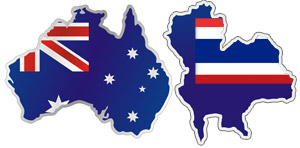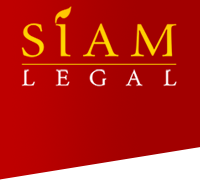Utilizing the Thailand-Australia Free Trade Agreement

Pursuant to the Thailand-Australia Free Trade Agreement, Australians are subject to special privileges which non-Australian foreigners in Thailand may not otherwise be granted.
What is the Thai-Australia Free Trade Agreement?
In 2003, Australia and Thailand announced intentions to enter into a free trade agreement, which resulted in the Thailand-Australia Free Trade Agreement (TAFTA) becoming operational as of 1 January 2005.1 The main objectives of the agreement were to create favorable conditions for the stimulation of trade and investment, as well as improving the efficiency and competitiveness of Thailand and Australia’s respective economies.2 This agreement facilitates trade and investment between the two countries, with the removal of a number of tariffs which had previously burdened trade between Thailand and Australia.
This has ultimately resulted in the elimination of 95% of tariffs on imports from Australia in 2010, with the residual tariffs to be phased to zero within the next decade.3 The TAFTA also confers several positive implications upon Australians who are investing and doing business in Thailand; by permitting majority Australian ownership of businesses in Thailand which would generally be restricted by Thai legislation for non-Australian foreigners.
What benefits are conferred upon Australians wishing to engage in business in Thailand?
The TAFTA goes beyond the trade agreement norm of simply reducing tariffs, rather it creates conditions that will improve two-way investments, with generous visa periods and expanded foreign ownership in various Thai industries. Typically, establishing a business in Thailand can be a difficult process, given that Thai law places certain restrictions on foreigners in relation to Thai industries. However, Australians can utilize the TAFTA to circumnavigate some of these restrictions that would be encountered by non-Australian foreigners in Thailand.
Using a full range restaurant as an example, pursuant to its listing in section 3 of the Foreign Business Act; ordinarily it would be restricted to only 49.9% foreign ownership. Fortunately, the Thailand-Australia Free Trade Agreement makes the majority of foreign ownership of a restaurant possible. However, this is only feasible on the condition that there is a total area of at least 450 square meters and a paid-up capital of at least 50 million THB.
Furthermore, the TAFTA allows for several more benefits which can be enjoyed by Australians in Thailand, mostly relating to visa arrangements. For example, Thailand will grant a visa and work permit for up to 5 years for Australian citizens who are transferred to Thailand to work within the same company. For the aforementioned restaurant business, this would alleviate the issue of having an Australian employee have to renew their visa on a regular basis. Though it is quite a long process to utilize the TAFTA in relation to establishing the business in Thailand, it is still prudent to pursue given the numerous advantages offered to Australians.
__________________________
2 Thailand-Australia Free Trade Agreement, Article 102, July 2004
3 Australian Government Austrade, Thailand-Australia Free Trade Agreement (TAFTA), retrieved 01/16/2013, <http://www.austrade.gov.au/tafta/default.aspx>
Category: Business in Thailand, Company Law











